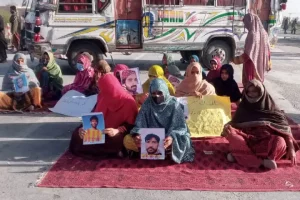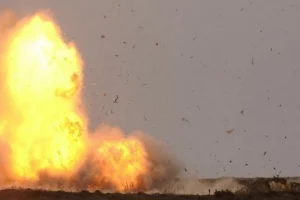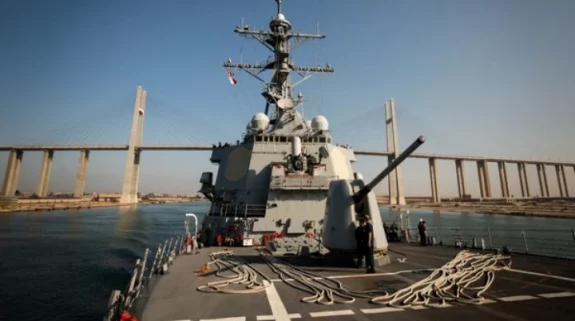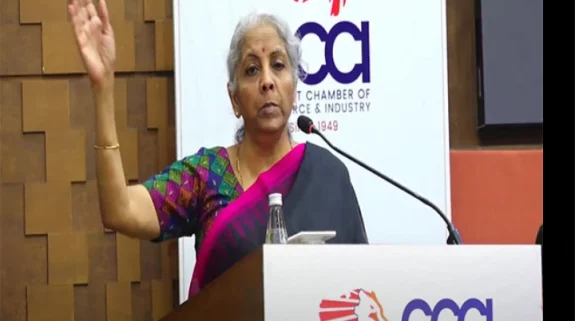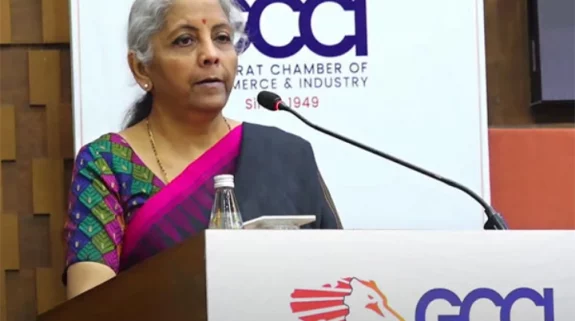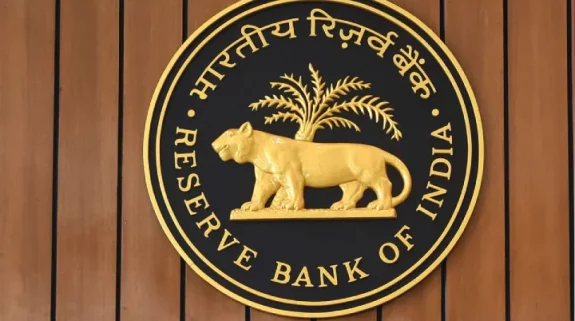In a revealing statement by the usually reticent Chinese, the chairman of the China Overseas Port Holding Company (COPHC) Yu Bo has said that the biggest difficulties in making the Gwadar Port functional and profitable, are the security precariousness.
In an interview to the Associated Press of Pakistan, COPHC chairman Yu said, “the number one obstacle is security precariousness” in making the Gwadar Port and the free economic zone functional. However, he also added that security has improved over the last many months but there is a bigger room to bridge security gaps.
The two nations have embarked upon an ambitious economic partnership – the China Pakistan Economic Corridor (CPEC) that connects China’s disputed region of Xinjiang to Pakistan’s disputed region of Balochistan. The partnership, which is almost one-sided with Beijing calling the shots is a $64 billion project with transport corridors, power plants, economic zones and a multi-use port at Gwadar – all of which is being built by China.
#Balochistan#China @hyrbyair_marri explains to @arifaajakia how Chinese soldiers have been seen conducting operations alongside Pak soldiers. Together, they risk the security in #SouthAsia@JIX5A @RDXThinksThat @96306rech @CleoPaskal @widhyarthi @AmbTrigunayat @KinraMark pic.twitter.com/CI2WyVfHeV
— Rahul Kumar (@rahulkumarindia) April 18, 2023
The local Baloch people have been running a seven-decade-long insurgency against Pakistan seeking independence and view China as Islamabad’s partner in their economic exploitation.
In an exclusive interview, Qazi Rehan of the Baloch National Movement (BNM) told India Narrative how intense the conditions are in conflict-ridden Balochistan. Rehan said: “Baloch guerrilla warfare is a successful strategy of local resistance against any powerful army. In this war, the Pakistani army is facing a nation where everyone is against the state of Pakistan and its Army”.
He added that all the 12 months of the year there is news of “constant military aggression. Military aggression in the mountainous areas of Bolan, Kech, Gwader, Panjgur, Kahan, Mashkey and other areas is not new”, highlighting how intense the conflict is in Balochistan.
Poor security haunts CPEC and Chinese engineers working on CPEC despite the fact that Pakistan has specially created a Special Security Division (SSD) to provide additional security to projects in Gwadar. The SSD was established by the Pakistani Army in September 2016 to protect the CPEC from internal and external threats.
The Pakistani armed forces magazine Hilal says: “The SSD has been raised and operationalized in a record time of less than two years and has taken over all the running projects of the CPEC”. The Pakistani army provides security to transport corridors, power plants, the Gwadar Port and all infrastructure that Chinese companies are building in Pakistan.
Despite Pakistani assurances and Chinese concerns, it is known that Pakistan has struggled to provide security to Chinese assets in large parts of the country like Balochistan, Sindh and Khyber Pakhtunkhwa. In all these Pakistani regions, the Chinese have been subject to suicide bombings, car bomb attacks and assaults by weapons.
The issue of lack of safety for its citizens has put Islamabad-Beijing ties under immense strain. China has also increasingly been mounting pressure on Pakistan to pay up its dues particularly to the power producing companies. However, concerns over safety of its citizens take prime concern for Beijing.
Nobody is feeling safe in Pakistan, not even countries that Islamabad counts as allies.
Saudi Arabia shifted its projects from Gwadar to Hub – a different industrial area close to Karachi. Even a friendly Qatar decided to invest in Punjab province instead of Balochistan, which almost everyone views with concern.
Sweden too shut down its embassy due to an increased threat perception to its nationals and people visiting the embassy. Earlier, China had closed down its counselor section in the Islamabad embassy. The European nation also advised its nationals to take personal safety measures as violence and terror attacks rose across Pakistan.








